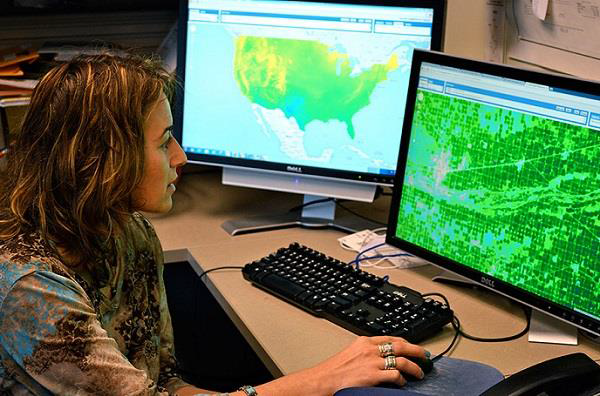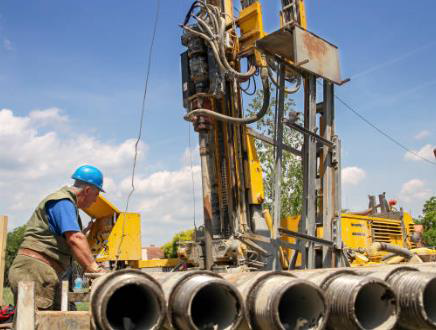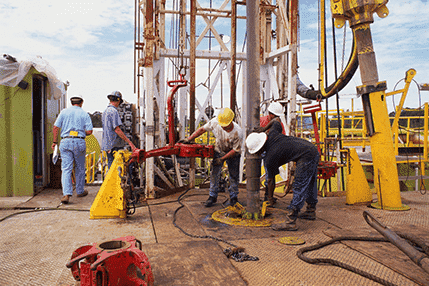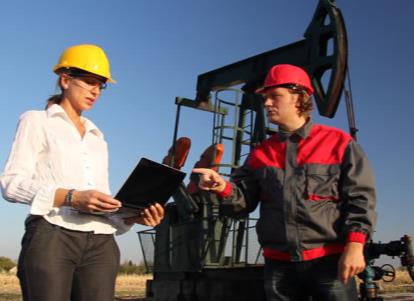COURSE OVERVIEW
DE0087 : Fractured Reservoir Characterization with Emphasis on Carbonates

OVERVIEW
| COURSE TITLE | : | DE0087 : Fractured Reservoir Characterization with Emphasis on Carbonates |
| COURSE DATE | : | Nov 18 - Nov 21 2024 |
| DURATION | : | 4 Days |
| INSTRUCTOR | : | - |
| VENUE | : | Al Khobar, KSA |
| COURSE FEE | : | $ 6750 |
| Request For Course | ||
OTHER SCHEDULED DATES
| Date | : | Apr 28 - May 02 2024 (5 Days) | Location | : | Doha, Qatar | Classroom Fee (US$) | : | $ 8500 | Course Info |
| Date | : | May 26 - May 30 2024 (5 Days) | Location | : | Dubai, UAE | Classroom Fee (US$) | : | $ 8000 | Course Info |
| Date | : | Aug 12 - Aug 16 2024 (5 Days) | Location | : | Abu Dhabi, UAE | Classroom Fee (US$) | : | $ 8000 | Course Info |
| Date | : | Aug 12 - Aug 15 2024 (4 Days) | Location | : | Abu Dhabi, UAE | Classroom Fee (US$) | : | $ 6750 | Course Info |
| Date | : | Sep 08 - Sep 12 2024 (5 Days) | Location | : | Doha, Qatar | Classroom Fee (US$) | : | $ 8500 | Course Info |
| Date | : | Nov 17 - Nov 21 2024 (5 Days) | Location | : | Al Khobar, KSA | Classroom Fee (US$) | : | $ 8000 | Course Info |
| Date | : | Dec 08 - Dec 12 2024 (5 Days) | Location | : | Doha, Qatar | Classroom Fee (US$) | : | $ 8500 | Course Info |
Course Description
More than fifty percent of the petroleum reservoirs are in carbonate rocks. In the Middle East, it is estimated that this number increases to seventy percent. A great number of these reservoirs are naturally fractured, e.g., Ghawar field, in Saudi Arabia, Cantarell field in Mexico and Yates field in the USA. These are three of the largest fields in the world. The interest in such fields has grown tremendously.
The presence of extensive networks of natural fractures creates a number of challenges for evaluating and optimising recovery from naturally fractured reservoirs. The use of dual porosity or dual permeability models is often necessary, providing the basis for both analytical methods (such as used for pressure transient analysis) as well as for reservoir simulation. Appropriate application of dual porosity and dual permeability models, however, rely on: a) accurate representation of the fracture system as an equivalent porous and permeable medium, and b) accurate determination of the rates of fluid transport between matrix blocks and the fracture system.
This course is designed to provide different approaches for evaluation and characterization of heterogeneous naturally fractured carbonate reservoirs by wire-line log, core analysis and well testing. Different methods for modelling and dynamic simulation of naturally fractured reservoirs and case histories will be reviewed including multiple porosity model with structured grids and single porosity with unstructured grids. Production data analysis of unconventional reservoirs will also be reviewed.
The course covers the fractured reservoirs, learn how to recognize and evaluate natural fractured reservoir; the overall effect of natural fractures on subsurface fluid-flow; the techniques that employ outcrop and subsurface rock data; the methods for controlling short-term and long-term performance in fractured reservoirs; the various types of data necessary to evaluate and manage them; and the geologic aspects, origin and classification of fractured reservoirs.
During this interactive course, participants will learn the geologic aspects and petrophysics properties of carbonate rock; the overall effect of natural fractures on subsurface fluid-flow; the reservoir characterization principals and techniques that employ outcrop and subsurface rock data; the types of data necessary to characterize the natural fracture reservoir and the modelling work flow; the fracture reservoir characterizing model can be constructed emphazing on carbonate; the methods for controlling short-term and long-term performance in fractured reservoirs; and the geologic aspects, petrophysics and rock properties.
The presence of extensive networks of natural fractures creates a number of challenges for evaluating and optimising recovery from naturally fractured reservoirs. The use of dual porosity or dual permeability models is often necessary, providing the basis for both analytical methods (such as used for pressure transient analysis) as well as for reservoir simulation. Appropriate application of dual porosity and dual permeability models, however, rely on: a) accurate representation of the fracture system as an equivalent porous and permeable medium, and b) accurate determination of the rates of fluid transport between matrix blocks and the fracture system.
This course is designed to provide different approaches for evaluation and characterization of heterogeneous naturally fractured carbonate reservoirs by wire-line log, core analysis and well testing. Different methods for modelling and dynamic simulation of naturally fractured reservoirs and case histories will be reviewed including multiple porosity model with structured grids and single porosity with unstructured grids. Production data analysis of unconventional reservoirs will also be reviewed.
The course covers the fractured reservoirs, learn how to recognize and evaluate natural fractured reservoir; the overall effect of natural fractures on subsurface fluid-flow; the techniques that employ outcrop and subsurface rock data; the methods for controlling short-term and long-term performance in fractured reservoirs; the various types of data necessary to evaluate and manage them; and the geologic aspects, origin and classification of fractured reservoirs.
During this interactive course, participants will learn the geologic aspects and petrophysics properties of carbonate rock; the overall effect of natural fractures on subsurface fluid-flow; the reservoir characterization principals and techniques that employ outcrop and subsurface rock data; the types of data necessary to characterize the natural fracture reservoir and the modelling work flow; the fracture reservoir characterizing model can be constructed emphazing on carbonate; the methods for controlling short-term and long-term performance in fractured reservoirs; and the geologic aspects, petrophysics and rock properties.
TRAINING METHODOLOGY
This interactive training course includes the following training methodologies:
LecturesWorkshops & Work Presentations
Case Studies & Practical Exercises
Videos, Software & Simulators
In an unlikely event, the course instructor may modify the above training methodology for technical reasons.
VIRTUAL TRAINING (IF APPLICABLE)
If this course is delivered online as a Virtual Training, the following limitations will be applicable:
| Certificates | : | Only soft copy certificates will be issued |
| Training Materials | : | Only soft copy materials will be issued |
| Training Methodology | : | 80% theory, 20% practical |
| Training Program | : | 4 hours per day, from 09:30 to 13:30 |
RELATED COURSES

DE0920 : Artificial Lift ESP Downhole Equipment
- Date: Jan 12 - Jan 16 / 3 Days
- Location: Istanbul, Turkey
- Course Details Register

DE0766 : Advance Drilling Optimization for HPHT Wells
- Date: Feb 02 - Feb 06 / 3 Days
- Location: Doha, Qatar
- Course Details Register

DE0500 : Screening of Oil Reservoirs for Enhanced Oil Recovery
- Date: Jan 12 - Jan 16 / 3 Days
- Location: Dubai, UAE
- Course Details Register

DE0409 : Field Development and Carbonate Reservoir
- Date: Feb 23 - Feb 27 / 3 Days
- Location: Doha, Qatar
- Course Details Register
